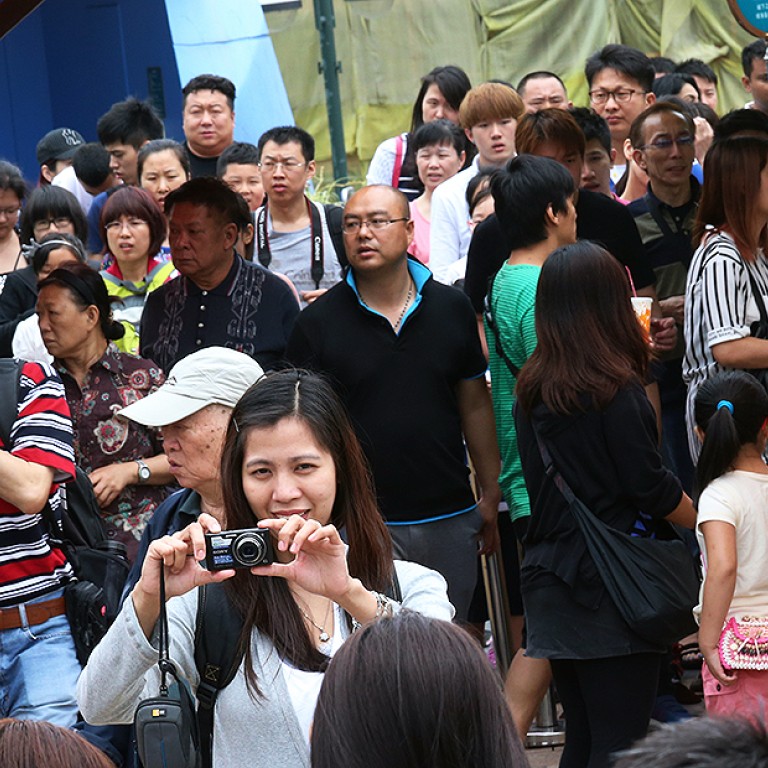
Impact from cutting number of mainland tourists ‘only short term’, says think tank
Think tank director says the impact of a 20 per cent cut in individual travellers will be significant in short term, but not in long run
Cutting the number of solo travellers to Hong Kong will hinder the city's economic growth but only in the short term, according to a think tank's economic simulation.
Andy Kwan Cheuk-chiu, director of the ACE Centre for Business and Economic Research, projected that if the government reduced the number of mainland individual travellers by 20 per cent, the city's real gross domestic product "will immediately drop drastically" in the worst-case scenario.
However, the economist said the impact would be reduced over the course of two years as "tourism only contributes to a small part of the city's economy".
Kwan forecast that the expected gross domestic product for this year would drop to 1.4 per cent from 3.3 per cent if there was a 20 per cent cut in mainland tourists, but the economy would pick up gradually due to its flexibility.
He said real GDP growth in 2016 would be 3.4 per cent compared with the expected 3.7 per cent.
"The cut will only affect one particular industry, not like the financial crisis in 2009 affecting all sectors," Kwan said. "And the tourism industry is small, so small that it won't drag down the whole economy."
He estimated that such a cut would drive up the unemployment rate this year to 3.48 per cent from the forecast 3.21 per cent. In 2016, the rate would be 3.69 per cent compared to 3.2 per cent if there is no reduction.
His projection is based on a simulation called the "Hong Kong economic model", which was formulated by Project LINK under the United Nations to study how different factors such as income, investment, imports and exports affect economic performance.
Late last month, Chief Executive Leung Chun-ying sought the views of the Commission on Strategic Development on a 20 per cent reduction in the number of mainlanders visiting Hong Kong each year.
That came after Hongkongers expressed widespread discontent over mainland tourists flooding the city.
About 40 million mainlanders visit Hong Kong each year, but that figure is projected to hit 100 million by 2020, putting an ever-greater strain on the city.
The debate about reducing mainland visitors has drawn fire from the business sector, with some saying any reduction would harm the city's economy.
Kwan's views were shared by other economists and academics. Bank of East Asia's chief economist Paul Tang Sai-on said the individual traveller scheme did not contribute much to the city's GDP.
"The total economic value-added of [mainland travellers] was only 1.3 per cent in 2012," he said, adding that a reduction in the number of mainland tourists may reduce employment opportunities for low-skilled workers.
Professor Terence Chong Tai-leung of the department of economics at Chinese University did not believe the drop in real GDP would be that drastic, even if the number of visiting mainlanders was cut by 20 per cent.
"The unemployment rate was also about three per cent several years ago when we did not have so many mainland visitors," said Chong. "So the worst case of cutting the number of mainland tourists would be going back to that situation, which is actually not too bad."
